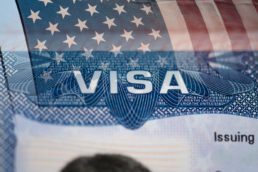If you have a job offer from a U.S. employer or you are a U.S. company seeking to sponsor a foreign national, an employment-based (EB) green card is a viable option. The green card comes with various benefits not offered to individuals seeking employment as a nonimmigrant. Nonimmigrant categories grant a person work authorization for a limited period of time which generally depends on the category being sought and the nature of the work being performed. A green card, on the other hand, is not a temporary work permit. A green card enables a foreign national to live and work in the U.S. on a permanent basis. This provides the employer with a potential long-term employee, and allows foreign workers to enjoy the many benefits and opportunities that living in the U.S. has to offer.
There are three main types of employment-based green cards:
- Employment-Based Immigration: First Preference EB-1. The EB-1 category is reserved for highly capable foreign nationals. These “priority workers” are divided into three subcategories:
a. Extraordinary Ability (EB-1A). The EB-1A can be utilized by foreign workers with extraordinary ability in the fields of science, art, education, business or athletics. To qualify, it must be shown that the foreign national has sustained national or international acclaim, and that the applicant’s achievements have been recognized in his or her field of expertise. This is demonstrated by receipt of a major internationally recognized award, such as a Nobel Prize, or by meeting any three of the 10 alternate eligibility criteria listed in the Immigration and Nationality Act (INA). There are two major benefits of the EB-1A category: (1) unlike all other employment-based green cards, applicants can self-petition; and (2) it provides individuals with one of the fastest channels in obtaining a green card. For information on how to apply for an EB-1A green card, please click on the link and visit our website.
b. Outstanding University Professors or Researchers (EB-1B). The EB-1B is a green card option for outstanding professors or researchers who have been internationally recognized as exceptional in a particular scientific or scholarly field. To qualify, the foreign national must (1) provide evidence that he or she satisfies at least two of the six criteria listed in the INA, (2) have at least three years of relevant research or teaching experience in a particular academic field, and (3) be provided with a job offer for a permanent research position or tenured teaching position in the U.S. For information on how to apply for an EB-1B green card, please click on the link and visit our website.
c. Multinational Managers and Executives (EB-1C). The EB-1C is reserved for multinational managers and executives who are interested in becoming lawful permanent residents. The petitioning employer must be a viable U.S. company and the foreign national applicant needs to have been employed by an affiliated entity abroad for at least one year. The petitioner must also show that the applicant’s high-level managerial or executive duties both abroad and in the U.S. involve critical decision-making, supervising and other job duties that are essential to the livelihood of the business. In other words, the executive or managerial nature of the applicant’s positions needs to be demonstrated and established. For information on how to apply for an EB-1C green card, please click on the link and visit our website. - Employment-Based Immigration: Second Preference EB-2. To be eligible for an EB-2 green card, the applicant must be a member of the professions holding an advanced degree or its equivalent, or a foreign national who has exceptional ability (distinguished from extraordinary ability) in the sciences, arts or business. Unlike the EB-1, the EB-2 category requires employer sponsorship for all applicants. It also requires a testing of the U.S. job market through the PERM process. This involves a series of recruitment activities by the employer to test the current U.S. job market. If no qualified and willing U.S. worker is found, the employer can then submit a PERM Labor Certification to the DOL. Once and if the PERM application is certified, an EB-2 petition can be filed with USCIS. For information on how to apply for an EB-2 green card, please click on the link and visit our website.
- Employment-Based Immigration: Third Preference EB-3. The EB-3 green card category is reserved for skilled, professional or other workers. Skilled workers are those whose job requires a minimum of two years training or work experience. Professionals are persons whose job requires at least a U.S. baccalaureate degree or a foreign equivalent, and other workers refers to individuals performing unskilled labor requiring less than two years training or experience. Similar to the EB-2, the EB-3 category requires employer sponsorship and a test of the U.S. job market through the PERM process. For information on how to apply for an EB-3 green card, please click on the link and visit our website.
If you are interested in applying for a green card and would like to explore your options, please contact our office to schedule a consultation with one of our knowledgeable attorneys today!
Ready to have Berardi on your side?
Whether you’re a business looking to hire or a professional hoping to relocate, immigration law can be complicated. But you don’t have to do it alone. Put our experience to work for you.



